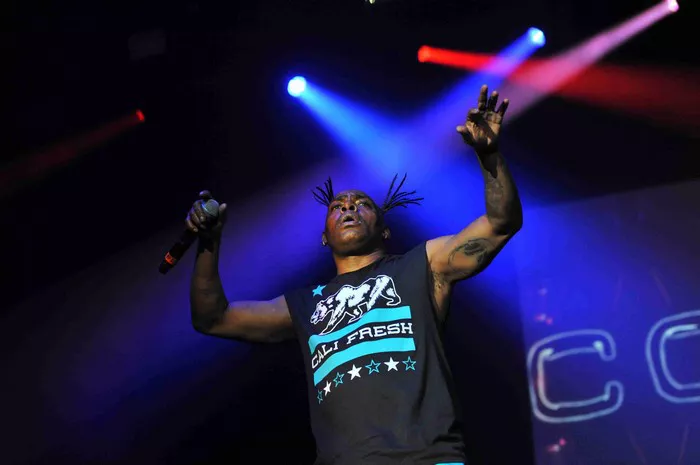Decoding the Essence of Rap: Unveiling the True Meaning Behind the Genre
In the vibrant and dynamic world of music, certain genres transcend mere auditory experiences, captivating listeners with their unique styles and stories. Rap music, characterized by its rhythmic delivery of lyrics, intricate wordplay, and socio-cultural narratives, stands tall as one such genre. Often misunderstood and subject to various misconceptions, the origin of rap music delves deep into the heart of expression, communication, and artistry.
A Sonic Revolution: The Core of Rapping
At the crossroads of rhythm and poetry lies the heart of rap music, an art form that reshapes language into a symphony of sound. When artists rap, they embrace a unique style of vocal delivery that combines rhythmic cadence with verbal dexterity. Unlike traditional singing, rap hinges on the pulse of words, weaving intricate patterns that reflect both personal experiences and societal narratives. This fusion of rhythm and spoken word transforms everyday language into an auditory spectacle, inviting audiences to engage not only with the lyrics but also with the pulsating heartbeat of the music itself.
Busting the Acronym Myth: Beyond ‘Rhythm and Poetry’
An often-circulated theory suggests that rap is an acronym for ‘rhythm and poetry.’ However, this notion, while intriguing, doesn’t accurately encapsulate the genesis of the genre. The true origin of rap music delves into historical and cultural contexts, reflecting the experiences, struggles, and aspirations of marginalized communities. Rap is more than a mere combination of words; it is a dynamic art form that captures the essence of a culture’s expression, often serving as a powerful commentary on social issues, injustices, and the celebration of resilience.
Roots in African Oral Traditions: The Griot Connection
To unearth the roots of rap, one must journey back to the African continent, where oral traditions were the conduits of history, storytelling, and cultural preservation. The griots, revered figures in West African societies, were the bearers of knowledge, passing down stories and wisdom through rhythmic, spoken-word performances. These oral traditions paved the way for rap’s emphasis on storytelling, rhythm, and lyrical prowess. The griot’s role as both historian and entertainer laid the foundation for rap’s multifaceted identity as a conduit for both personal expression and communal memory.
The Bronx Birthplace: Hip-Hop’s Evolution
While rap music’s lineage can be traced back to ancient traditions, its modern iteration found fertile ground in the urban landscapes of the 1970s. The Bronx, New York, specifically, played a pivotal role in rap’s emergence. As DJ Kool Herc pioneered the art of “breakbeat” mixing at house parties, MCs (Masters of Ceremonies) began improvising rhythmic verses over these beats. This dynamic interaction between DJs and MCs laid the foundation for the hip-hop culture that birthed rap music. The Bronx, with its diverse population and cultural influences, became the melting pot where creativity thrived, birthing a movement that would soon reverberate across the globe.
Frequently Asked Questions About Rap Music
Q1: Is rap music solely about rhythm and lyrics?
A1: While rhythm and lyrics are integral components of rap music, the genre encompasses much more. Rap serves as a platform for social commentary, storytelling, personal expression, and cultural reflection. Its lyrical depth often invites listeners to explore a myriad of themes, from politics to personal struggles, fostering connections between artists and audiences on a profound level.
Q2: How has rap music evolved over the years?
A2: Rap music has evolved in numerous ways since its inception, branching into various subgenres and styles. It has incorporated diverse musical elements, adapted to changing societal dynamics, and expanded its influence globally. From the boom bap of the ’80s to the trap beats of today, rap’s evolution reflects not only changing musical trends but also the evolving narratives of the communities it represents.
Q3: What role does rap music play in contemporary culture?
A3: Rap music continues to serve as a powerful vehicle for self-expression, social critique, and cultural representation. It provides a platform for artists to address social issues, share personal narratives, and connect with audiences on a profound level. Moreover, rap has the unique ability to transcend linguistic and cultural barriers, fostering cross-cultural conversations and promoting a deeper understanding of diverse perspectives.
Unveiling the Heartbeat of Expression: Rap’s Unconventional Harmony
In a world where music is a universal language, rap emerges as a distinct dialect, engaging in conversations that transcend time and space. The origin of rap music, far from being a mere acronym, is a rich tapestry woven from historical, cultural, and creative threads. From the African griots to the bustling streets of the Bronx, rap’s journey is one of resilience, innovation, and boundless imagination. As the genre continues to evolve and captivate audiences, its essence as a medium of unfiltered expression remains unwavering, speaking truths and stories that echo through generations.

